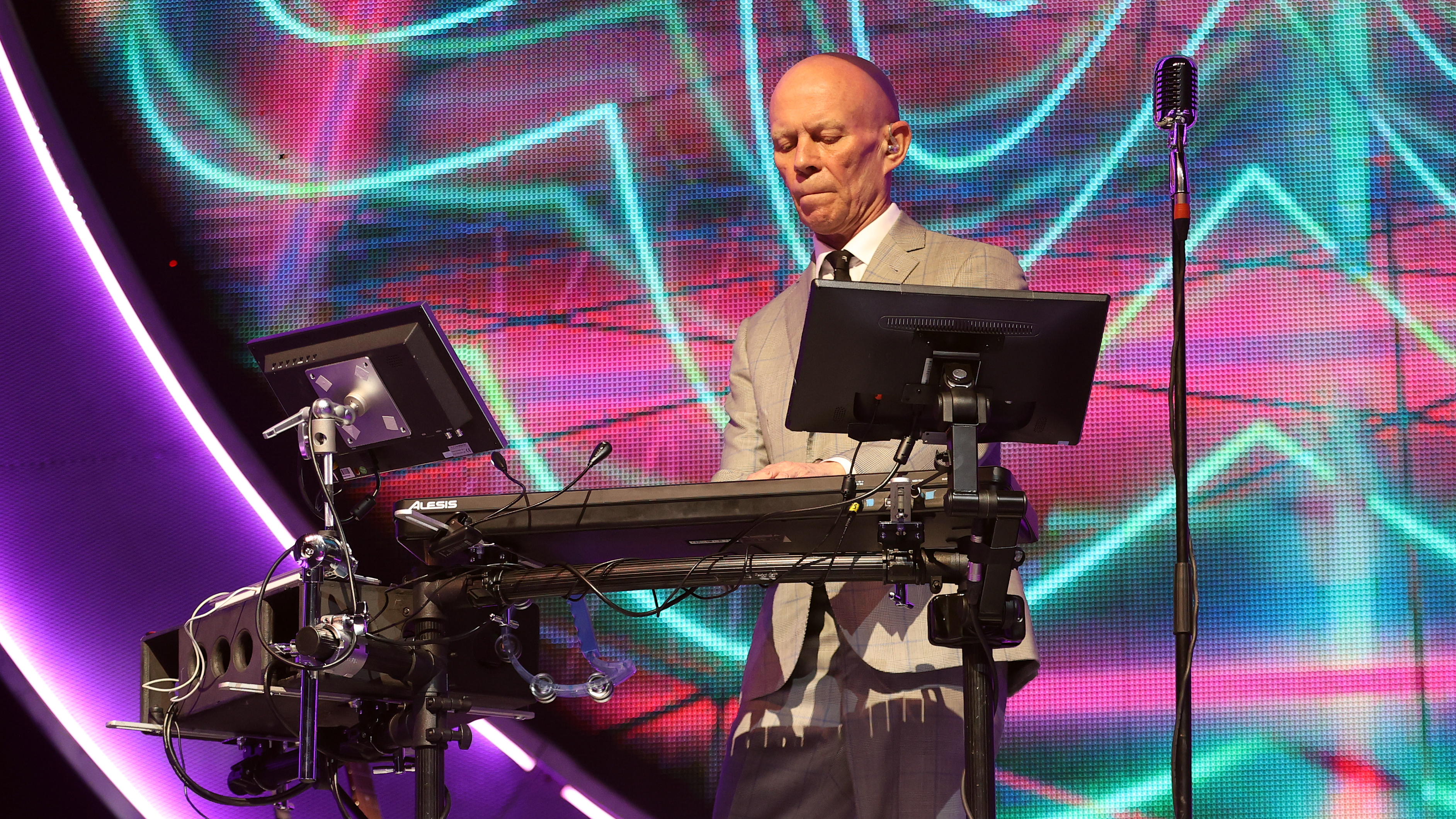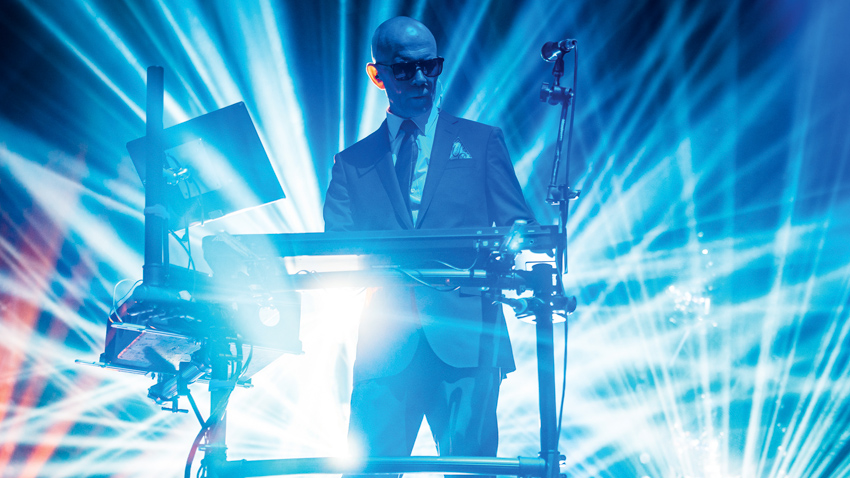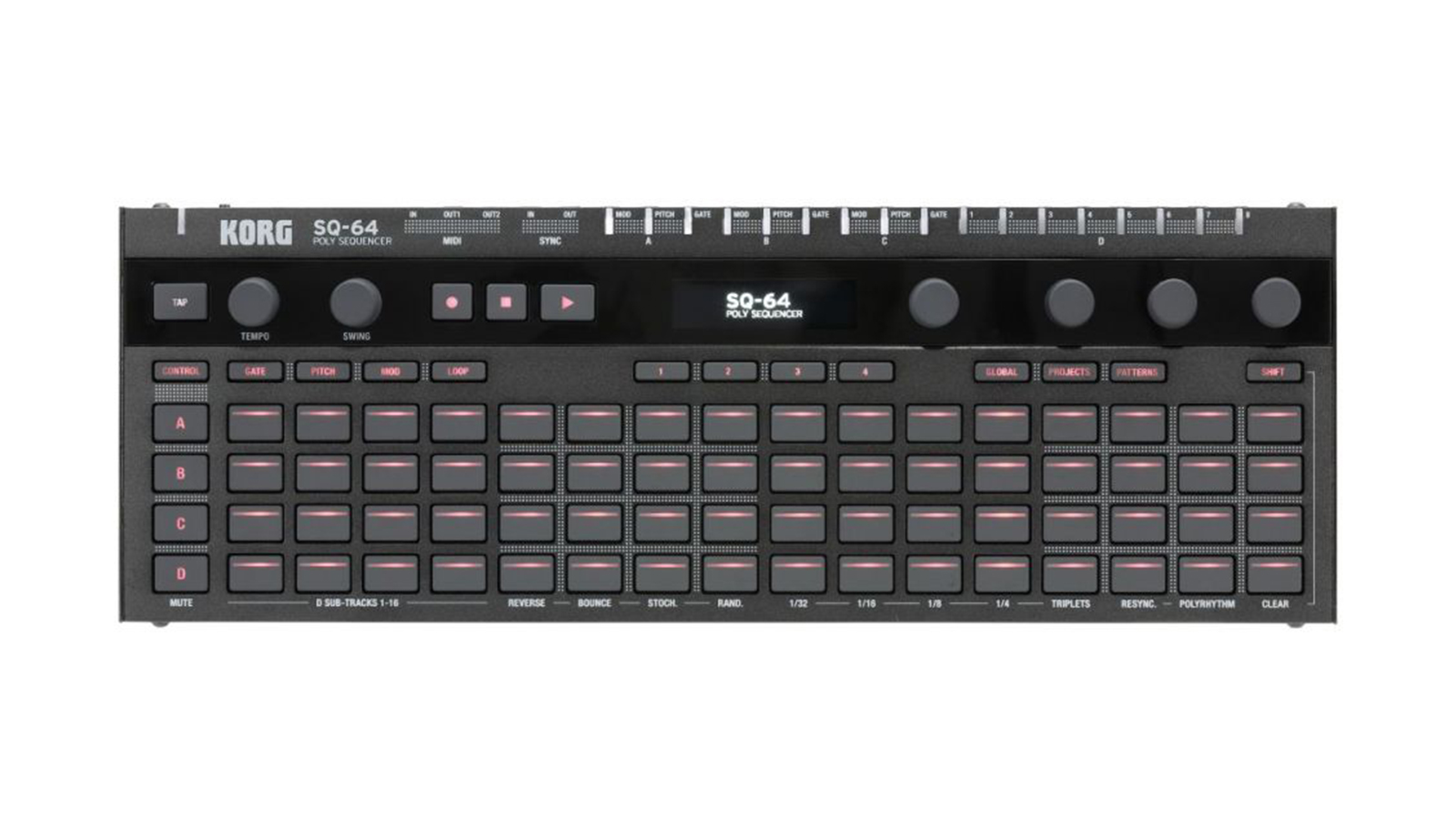Vince Clarke on sequencers: "the revolution in electronic music didn’t happen with the DX7 or the Prophet-5 – it happened with the sequencer"
The Erasure, Depeche Mode and Yazoo keyboardist opens up in a new interview with Tape Op

Vince Clarke of Depeche Mode and Erasure has opened up on his creative process, his relationship with Andy Bell and his love of hardware sequencers in a new interview with Tape Op.
Picking out his favourite synths, Clarke singled out the Sequential Circuits Pro One, Roland SYSTEM-100M, System 700 and Juno-60. Speaking about the System 700, he observed: "There’s nothing that I can do on that synthesizer that will break it, unless I start messing about with the power at the back. I don’t know what it’s necessarily going to do. I have an idea of generally how they work, but if I turn a knob here and connect a filter to an envelope, or whatever it might be, or FM two stages together, who knows what’s going to happen? I love that."
He continued: "I love the tactile-ness of it. I spend too much time with a mouse. My son spends too long with his finger on a tablet. [With synthesizers,] I love that two-handedness. Say, for instance, that you’ve got a fairly simple synthesizer like a Pro-One. There are only so many knobs on it. But if you really think about it, it’s infinite sounds. I’ll start with a sound in my head, and then it’ll sound nothing like it, because I don’t know how to get that sound."

Vince Clarke: "I’m not a good-enough keyboard player to write on the synth"
Clarke also discussed his love of hardware sequencers and recalled working with the Roland MC-4, a CV/gate sequencer, on tour. "The programming took me forever [...] Have you ever worked with one? It’s numbers. You put everything in 12s. You dream in 12s. Your CV, your gate, and all the rest. I had all the information on my MIDI sequencer, and I had to get that into the MC-4. The MC-4 only triggers four synthesizers at once, and there was a switching system.
"There was a way of doing it where two MC-4s could control eight synthesizers, and I could switch from one to the next. The CV/gate in one instance would play on a [Sequential Circuits] Prophet-5 and then it would go over to the [Sequential Circuits] Pro-One or something. I’d program all that. It was all numbers, and it drove me insane. But I’m very nerdy – I wanted to do it."
"The revolution in electronic music didn’t happen when they invented the [Yamaha] DX7 or the Prophet-5." Clarke continued. "It happened when they invented the sequencer. It enabled me to program something I could only dream of, which is what I do. I imagine it, and then I make it happen."

The 5 best new sequencers and controllers of 2021, as voted by you
The Erasure keyboardist also opened up about meeting his bandmate Andy Bell for the first time. "Our relationship was quite awkward in the beginning. [...] he was just so shy. He wouldn’t say a word in the studio. Me and the people I was with, the engineer and producer at the time, we would try to make jokes and get him to loosen up a bit – to help him feel at ease. But it took a long time for that to happen." he continued. "It was the same when we performed live for the first time, because he didn’t move when he was up on stage. He was glued to the mic stand. But once he started moving, he couldn’t stop... [laughs]"
Get the MusicRadar Newsletter
Want all the hottest music and gear news, reviews, deals, features and more, direct to your inbox? Sign up here.



I'm MusicRadar's Tech Editor, working across everything from product news and gear-focused features to artist interviews and tech tutorials. I love electronic music and I'm perpetually fascinated by the tools we use to make it. When I'm not behind my laptop keyboard, you'll probably find me behind a MIDI keyboard, carefully crafting the beginnings of another project that I'll ultimately abandon to the creative graveyard that is my overstuffed hard drive.









